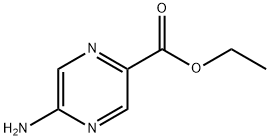Imagine waking up to find your grocery bills skyrocketing, your car’s fuel prices surging, and even everyday items like plastic bottles and fertilizers becoming scarce. Sounds like a dystopian movie? Well, thanks to the escalating Israel-Iran conflict, this nightmare might soon become reality. The Middle East—a powerhouse of chemical production—is in turmoil, and the shockwaves could hit global markets harder than you think. But how exactly does a war thousands of miles away affect your wallet, health, and even the food on your table?
Chemical Chaos in the Middle East: Will the Israel-Iran Conflict Trigger a Global Supply Chain Crisis?
Related Encyclopedia

- 9003-11-6
- (C3H6O.C2H4O)x
- 102.13
- All (13)
- China (2)
- (13)

- 9003-07-0
- C22H42O3
- 42.08
- All (98)
- China (24)
- (98)

- 25213-02-9
- C8H16
- 112.21264
- All (24)
- China (2)
- (24)

- 9002-88-4
- (C2H4)n
- 28.05316
- All (24)
- China (2)
- (24)

- 115-07-1
- C3H6
- 42.08
- All (4)
- China (4)
- (4)
![[4-[(E)-2-(5,5,8,8-tetramethyl-6,7-dihydronaphthalen-2-yl)prop-1-enyl]phenyl]methanol](https://chemcloud-1304660855.cos.ap-shanghai.myqcloud.com/compound/50d21f6fcaa34dec91920183ac1c1739.png?imageMogr2/format/webp)
- 71441-30-0
- C24H30O
- 334.49400
- All (0)
- China (0)
- (0)

- 68442-33-1
- C8H15Cl
- 146.6577
- All (2)
- China (0)
- (2)

- 7664-41-7
- H3N
- 17.03
- All (8)
- China (5)
- (8)

- 10193-64-3
- CH7NO
- 49.07240
- All (0)
- China (0)
- (0)

- 9010-79-1
- (C3H6.C2H4)x
- 70.13
- All (0)
- China (0)
- (0)
Related Products More >
-
- 63231-66-3
- CNY Request For Quotation
-
- 632-51-9
- CNY Request For Quotation
-
- 632-51-9
- CNY Request For Quotation
-
- 632-51-9
- CNY Request For Quotation
-
- 96-45-7 Ethylene thiourea
- CNY Request For Quotation
-
- CNY Request For Quotation
-
- CNY Request For Quotation
-
- CNY Request For Quotation




Okay, let’s break this down. The Middle East isn’t just about oil—it’s a massive player in the global chemical game. Think fertilizers for your food, plastics for your water bottles, even raw materials for lifesaving medications. And right now, thanks to the Israel-Iran showdown, that supply chain is hanging by a thread.
Chemical Chaos: What’s Shutting Down?
Israel’s Carmel Olefins—a big deal in the ethylene and propylene world (aka the stuff that makes plastic)—got knocked offline after Iranian missile strikes. Translation? Fewer plastics for packaging, car parts, you name it. Meanwhile, Iran’s methanol plants (key for everything from windshield fluid to pharmaceuticals) are also down after Israeli drones hit their gas supplies. No gas = no methanol = price spikes worldwide.
Health & Household Domino Effect
Here’s where it gets scary:
Fertilizers: Iran’s ammonia plants (critical for crop-boosting fertilizers) are paused. Less fertilizer = pricier wheat, corn, and—yep—your morning bread.
Medications: Methanol isn’t just for fuel; it’s in sanitizers, vaccines, and even cancer drugs. Shortages could delay treatments.
Plastics: From IV bags to water bottles, polyethylene shortages might hit hospitals and supermarkets alike.
Trade Turbulence Ahead
Iran’s the #3 chemical exporter in the region. With 85+ plants hobbled, global buyers are scrambling. Europe’s already sweating over methanol shortages, while Asia’s bracing for pricier plastics. And the U.S.? We import key chemicals for farming and manufacturing. Buckle up for cost hikes.
This isn’t just "some foreign conflict." It’s a ticking time bomb for global supply chains. Will peace talks ease the crisis? Or will your next grocery receipt look like a luxury bill? Stay tuned—and maybe stock up on that hand sanitizer.
Latest Developments: Escalating Shutdowns
Recent Israeli airstrikes on Iran’s South Pars gas field—a vital feedstock source for methanol and ammonia plants—have forced Marjan Petrochemical’s 1.65 million-ton methanol facility offline. Analysts at S&P Global Commodity Insights warn that three other Iranian methanol plants may also be idled due to gas shortages. Meanwhile, Israel’s Carmel Olefins has shuttered its 240,000-ton ethylene and 180,000-ton polypropylene facilities after Iranian missile strikes damaged power infrastructure.
Ripple Effects: From Plastics to Food Supplies
The disruptions threaten far more than regional trade:
Methanol shortages could spike prices for formaldehyde (used in adhesives) and fuel additives.
Ammonia production halts may tighten global fertilizer supplies, risking higher food costs.
Polyethylene (PE) and polypropylene (PP) outages could squeeze packaging, automotive, and construction sectors already grappling with post-pandemic demand.
U.S. Impact and Alternatives
While the U.S. relies less on Middle Eastern polymers than Asia, ethylene and propylene derivatives are integral to everything from medical devices to electric vehicle components. Some buyers are pivoting to Saudi and U.S. Gulf Coast suppliers, but logistics bottlenecks and elevated freight costs loom.
What’s Next? With ceasefire talks fragile, analysts fear prolonged downtime could reshape global chemical trade flows. For industries dependent on these 8 critical compounds, contingency planning is no longer optional—it’s urgent.
Shipping Disruptions: The Strait of Hormuz, a vital chokepoint for oil and chemical exports, could face blockades or attacks, raising freight costs and delays.
Production Halts: Facilities in Israel or Iran may suspend operations, tightening supply for products like ammonia and methanol.
Price Volatility: Geopolitical tensions often spike energy and chemical prices, impacting industries from agriculture to manufacturing.
For daily life, expect potential price hikes in fertilisers (affecting food costs) or plastics (raising packaging expenses). However, global markets have contingency plans, such as rerouting shipments via the Suez Canal or relying on alternative suppliers like the U.S. or China.
While a global crisis is improbable, regional instability will likely cause short-term disruptions. Companies are advised to diversify suppliers and monitor geopolitical developments closely.